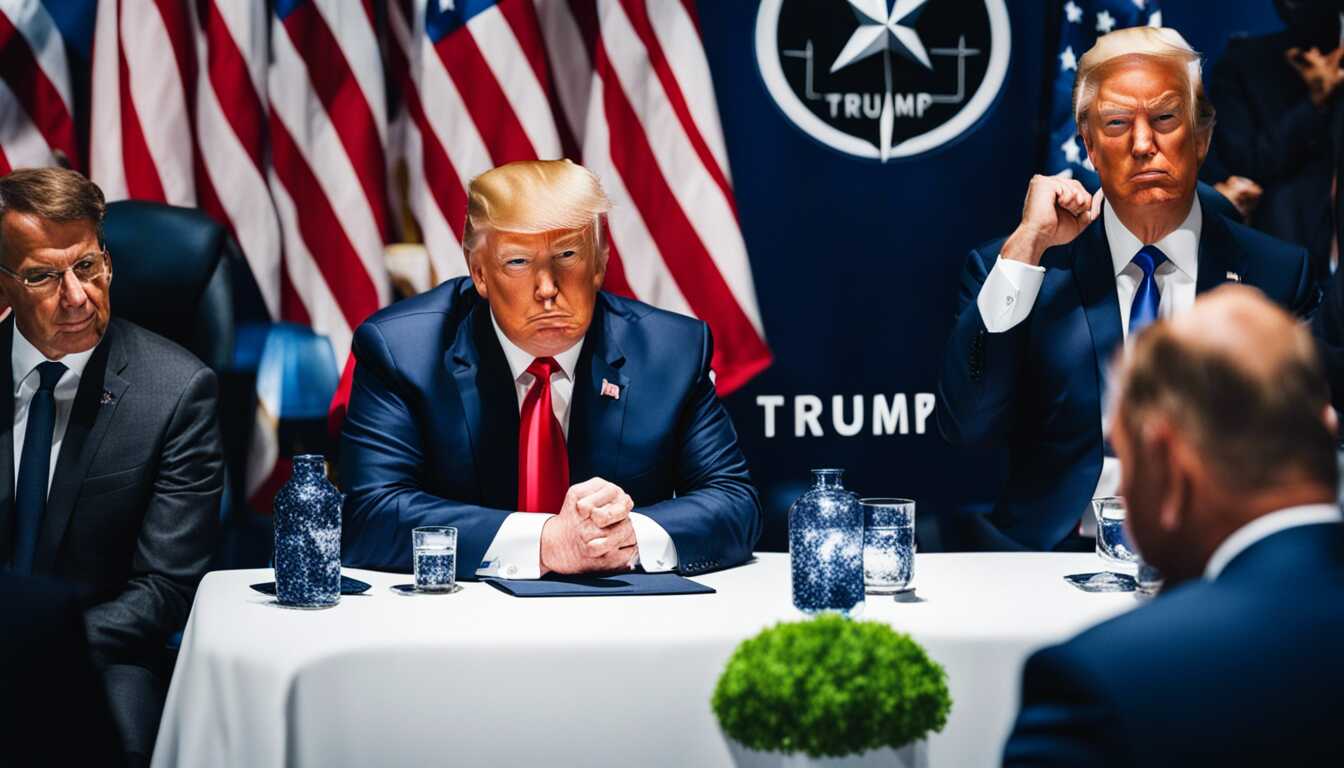
Trump's controversial NATO comments spark international outcry

Former U.S. President Donald Trump's recent comments regarding NATO and Russia have prompted strong reactions from U.S. lawmakers and international leaders. At a rally in South Carolina, Trump stated that he would not protect NATO countries from Russian attacks if they did not meet their defense spending guidelines. This remark has drawn sharp criticism from various quarters, with U.S. President Joe Biden, NATO Secretary General Jens Stoltenberg, and European leaders denouncing Trump's stance.
Trump's remarks and reaction
During his speech, Trump recounted a hypothetical scenario where he warned a NATO member that failed to meet the 2% defense spending target that he would not come to their aid in the event of a Russian invasion. He emphasized the importance of meeting financial obligations within the alliance, stating, "You got to pay. You got to pay your bills."
The Kremlin's response
While Trump's comments sparked widespread condemnation, the Kremlin chose not to directly address the remarks. Dmitry Peskov, the spokesman for Russian President Vladimir Putin, dismissed any association with Trump, stating, "I am still Putin's press secretary, but not Trump's."
International backlash
U.S. President Joe Biden described Trump's comments as "appalling and dangerous," emphasizing their predictability from a leader with authoritarian inclinations. Similarly, NATO Secretary General Jens Stoltenberg reaffirmed the alliance's commitment to defending all members and stressed the importance of unity in ensuring collective security.
Political fallout
Trump's remarks have also reverberated within U.S. politics, with both Democratic and Republican figures criticizing his stance. Potential Republican presidential candidate Nikki Haley emphasized the crucial role of NATO in preventing conflicts and voiced opposition to aligning with Russia. Former Republican presidential candidate Chris Christie labeled Trump as unfit for the presidency, echoing concerns about his leadership.
NATO's Defense Spending Target
The controversy surrounding Trump's comments has brought attention to NATO's defense spending target, with only a subset of member countries meeting the 2% GDP requirement. This issue has become particularly relevant in light of rising tensions with Russia following its invasion of Ukraine.
Concerns and reaffirmation
Political leaders and officials from various countries and organizations have expressed their concerns over the potential implications of undermining NATO's collective defense principle. Germany's Foreign Office highlighted solidarity with the slogan "One for all and all for one," while Poland's Defense Minister emphasized the concrete commitment of NATO's defense pact.
Future implications
As the controversy unfolds, the international community is closely monitoring the fallout from Trump's remarks and its potential impact on NATO's unity and credibility. The incident has underscored the complex dynamics within the alliance and raised broader questions about the future of transatlantic security cooperation.
The fallout continues
The fallout from Trump's controversial NATO comments is likely to persist, with ongoing debates about defense spending, alliance cohesion, and the role of the U.S. in international security arrangements. As political rhetoric intersects with strategic considerations, the repercussions of such statements reverberate across the global geopolitical landscape.
In this evolving scenario, the implications of Trump's comments reverberate far beyond the realm of conventional political discourse, shedding light on the intricate dynamics of international security and the enduring significance of collective defense commitments.
Share news















